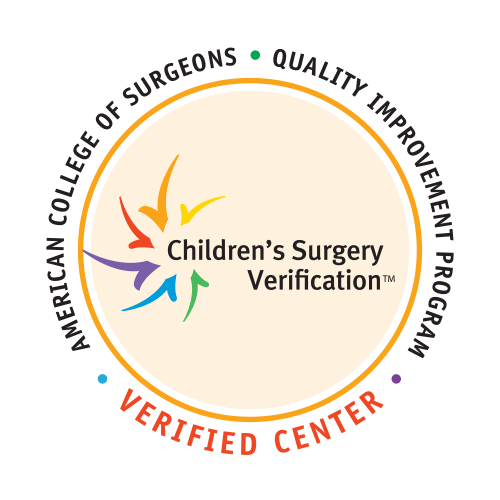
Pediatric Care for Single Ventricle Heart Defects
Specialists at University Hospitals Rainbow Babies & Children’s Hospital are dedicated to helping children and families cope with the challenges of single ventricle heart disease.
We are widely recognized for our leadership in staged palliative surgeries to help relieve patients’ symptoms and improve quality of life for patients with single ventricle heart disease, including hypoplastic left heart syndrome, tricuspid atresia and many others.
For More Information About Single Ventricle Care
If you or a family member has any questions regarding our Single Ventricle Monitoring Program – Hearts at HOME or the Comprehensive Pediatric Fontan Clinic, please call 216-844-1234 to speak with a team member.
What Are Single Ventricle Defects?
Approximately 1 in 10,000 children are born with a single ventricle heart defect. The condition occurs when one of the two pumping chambers in the heart, called ventricles, is not large enough or strong enough to work correctly or is missing a valve. One of the most serious forms of congenital heart disease, a single ventricle defect prevents the heart from pumping blood effectively.

Children with single ventricle heart disease may encounter complications such as:
- Fatigue and difficulty exercising
- Abnormal heart rhythm
- Liver problems
- Learning difficulties
- Behavioral issues
- Abnormal clot formation
- Loss of protein in the stool causing diarrhea
- Abnormal airway plugs causing chronic cough

A number of congenital cardiac conditions are single ventricle defects, including:
- Some Atrioventricular septal defects (AV canal)
- Double inlet left ventricle
- Some double outlet right ventricles
- Some Ebstein anomalies
- Hypoplastic left heart syndrome (HLHS)
- Hypoplastic right heart syndrome (HRHS)
- Some forms of pulmonary atresia
- Tricuspid atresia
How is a Single Ventricle Defect Diagnosed and Treated?
Single ventricle heart defects are usually diagnosed before birth via a fetal echocardiogram, a special type of ultrasound test that looks at the baby’s developing heart. In most cases, the condition requires intensive medical and surgical intervention soon after delivery. To address the defect, children typically undergo a series of staged surgeries during the first three to four years of life called single ventricle palliation.

Home Monitoring of Infants Born With a Single Ventricle Defect
Our monitoring activity focuses on the care of infants between heart surgeries, whether they are being cared for in the hospital or at home. We are the first pediatric heart program in northern Ohio to provide a home monitoring team called Hearts at HOME. This team provides the equipment and resources which helps give parents more confidence in caring for their infants between the staged surgeries for single ventricle defect treatment. In addition to monitoring, the Hearts at Home uses the the EPIC MyChart program to provides access to the pediatric cardiology team, 24/7.
Managing Pediatric Single Ventricle Patients after Fontan Operation
UH Rainbow offers the Comprehensive Pediatric Fontan Clinic at the hospital’s main campus location in University Circle. This specialized clinic is for all pediatric single ventricle patients who have had their Fontan procedure.
The Congenital Heart Collaborative is committed to providing state-of-the-art care for all of our patients with single ventricle heart conditions. Early optimized medical management is key to preventing and delaying many of the complications that can develop as these children grow older. The Comprehensive Pediatric Fontan Clinic provides advanced care to improve long-term outcomes and promote overall patient health and well-being.
Though cardiac care is a major priority for patients who have had Fontan surgery, close monitoring of the liver, kidney and lung health, as well as potential learning disabilities, is extremely important. Our clinical staff provides multidisciplinary care for single ventricle patients and all of their unique medical concerns, collaborating closely with many other pediatric medical specialties and services, including our colleagues who specialize in the care of the liver, intestines, kidneys, lungs and other organs. We will also coordinate evaluations and visits with our neurodevelopmental specialists.
Specialized testing we offer includes:
- Blood work testing
- Echocardiogram
- Electrocardiogram (ECG/EKG)
- Exercise testing with metabolic testing
- 24-hour or longer home ECG/EKG
- 24-hour home blood pressure monitoring
- Chest x-ray
- Liver ultrasound and other liver image testing
- Neurodevelopmental screening/testing
- Dietary counseling
Our team uses evidence-based evaluation and treatments for patients as they move from childhood into teenage years. If your child already sees a primary cardiologist, we will work with them to make sure your child receives the best single ventricle care. As our patients move through their teenage years, we also help prepare them for the transition into our comprehensive adult congenital heart disease program.
Improved Quality of Life with a Single Ventricle Defect
Children who undergo surgical repair for single ventricle defects require lifelong follow-up care by a pediatric cardiologist and may need to take certain medications for the rest of their life. Sometimes additional procedures will be required throughout the patient’s lifetime.
You can promote your child’s health and minimize their risk of complications by encouraging them to:
- Avoid smoking
- Eat a healthy diet consisting of lots of fruits, vegetables and whole grains, but low in fats, sweets and salt
- Maintain a healthy BMI
- Maintain a normal blood pressure
- Maintain excellent oral health
- Maintain regular clinic follow-up
- Participate in some form of exercise as prescribed by the cardiologist or nurse practitioner
- Take their medications as prescribed
Your child’s health is important. Get expert care.
To schedule an appointment with one of our pediatric heart experts, call
216-844-3528.

UH Rainbow is recognized as a Level I Children’s Surgery Center by the American College of Surgeons (ACS), reserved for hospitals that meet the highest standards for quality care, safety, staffing, training, data collection and infrastructure. This quality indicator means that we are focused to prevent complications, hold down costs and improve patient outcomes.


